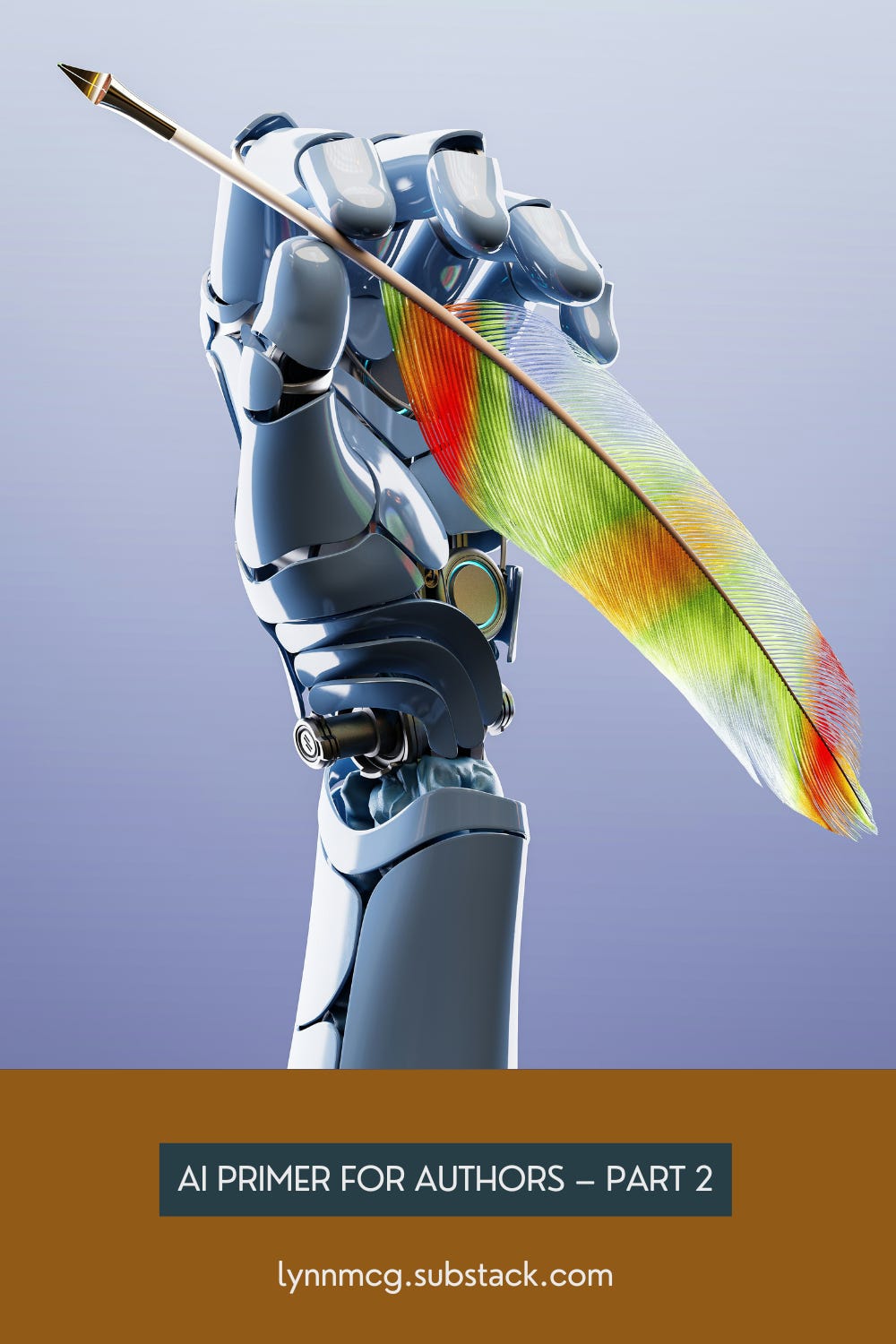Yes, AI can write a book.
That’s the line that makes the headlines, fuels the fears, and sells the shortcuts. And technically, it’s true—AI can generate thousands of words, structure them into chapters, and spit out something that looks like a book in record time.
But just because you can doesn't mean you should.
There’s a difference between creating a product and writing something real. A book isn’t just word count. It’s craft, perspective, and voice. It’s the result of lived experience and clear intention. And when you hand the creative process over to a tool that doesn’t think, feel, or imagine... it shows.
In a world where authors are encouraged to write a book in a weekend with AI, should you? Yes, I know authors who have written a book in a weekend, but not with AI. They are experienced authors writing their third or twelfth book from refined ideas, proven frameworks, and their own writing style. They’re not racing to get their words out, they’re just ready to.
That kind of speed comes from practice and experience, not shortcuts.
But when first-time nonfiction authors use AI to quickly publish a lead magnet or authority-building book, it often hurts more than it helps. These books are meant to introduce your voice, demonstrate your credibility, and set the tone for how readers perceive you. If they’re rushed—assembled from generic prompts, lightly edited, and pushed out without clarity or intention—they can damage your reputation. Instead of building trust, they create doubt. And once a reader questions the substance of your book, they’re far less likely to take the next step with you.
The problem shows up in fiction too. Entire categories—romance, thrillers, and especially science fiction—are being flooded with AI-written books. These books often follow formulas, recycling plot points and tropes pulled from existing content. They're not written to tell a story; they're written to make a sale. And it’s creating noise. Thoughtful, creative, and deeply researched novels—especially in genres like science fiction that demand imagination and technical credibility—are getting buried. Authors who pour months or years into building original worlds are now competing with content that was generated in a weekend. And readers are starting to notice. Many can feel when a story lacks heart. They may not always know it’s AI, but they know something’s missing.
And it’s not just happening in the writing. AI has crept into every part of the process. Grammarly, predictive text, Canva’s Magic Write, Microsoft Editor—most authors are already using AI without realizing it. That’s not always a bad thing. But if you're relying on these tools to clean up your sentences, rewrite your paragraphs, or "fix" your voice, you're slowly editing out the thing that makes your work unique.
Worse, you may not even notice it’s happening—until your writing starts to sound like everyone else’s.
There’s also a deeper risk I don’t think enough people are talking about: creative atrophy. Writing is a skill. It takes practice. When you let AI do the hard part—wrestling with a sentence, choosing the exact right word—you lose that muscle. And over time, the creative instinct that once felt natural gets dull.
AI can’t imagine. It can’t discover something new. It doesn’t surprise itself. And if you start relying on it too heavily, you’ll stop surprising yourself too.
Still, I’m not saying you should ignore it. You shouldn’t.
Authors should be using AI for research—because in many cases, it’s more useful than Google. You can ask for lists, summaries, frameworks. But you should also question it. Push back. Ask where it got its information. It will rarely resist. That’s by design. These tools are built to be helpful... sometimes at the cost of being accurate.
That’s what we’ll talk more about later in this series—how to use AI to support your work without erasing your voice. Because the real threat isn’t being replaced by AI—it’s falling behind while others learn how to use it more effectively than you do.
AI might help you move faster. But it can’t replace the work of thinking, imagining, and writing something that matters. That’s yours to do.
And that’s what makes you an author.
Not sure what’s standing between you and the readers you want to reach?
Let’s take 30 minutes to look at where you are, where you want to go, and what might be getting in the way. If I can help close the gap, I’ll share how - whether that’s coaching, consulting, or done-for-you support.
Book your free UnStuck appointment here.
Lynn brings her more than 30-years experience in small business marketing, publishing, and multiple best-selling author campaigns to her Substack newsletter. She helps authors build and grow their platforms to reach their unique marketing goals through private coaching, non-fiction consulting, and done-for-you marketing programs. And all this, through her computer, in her little lake house in rural Pennsylvania which she shares with her husband, son, and two fluffy companions, Kaiju and Bella.



